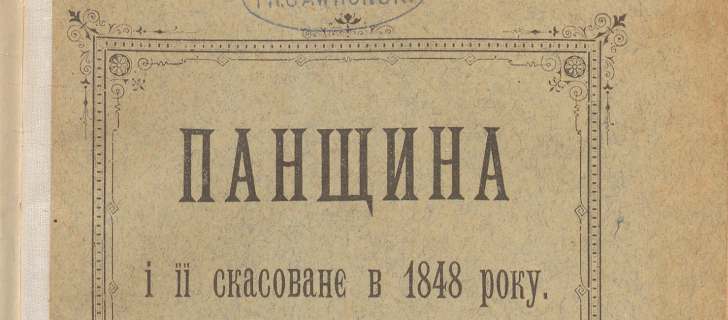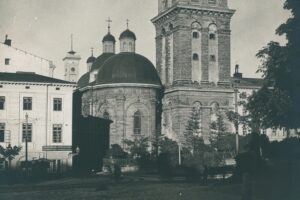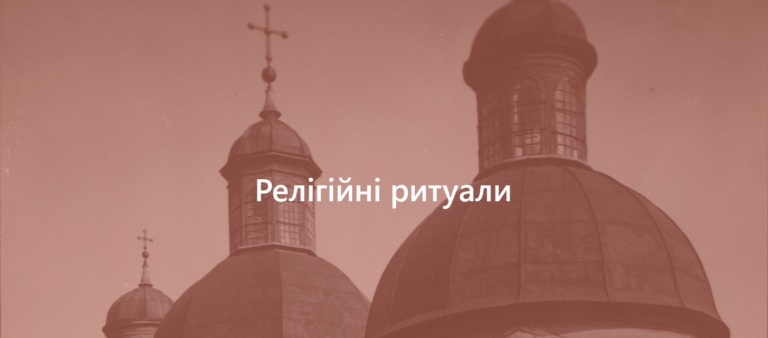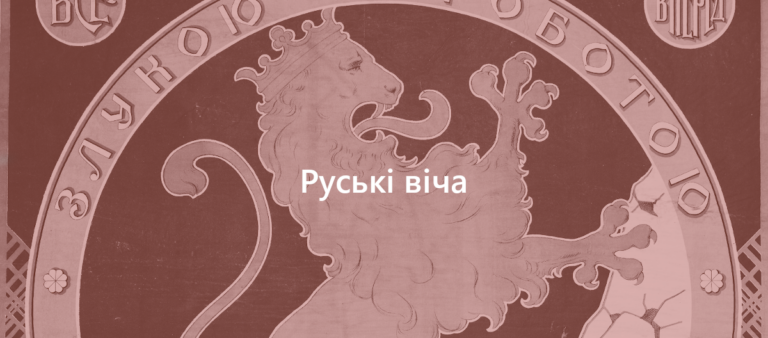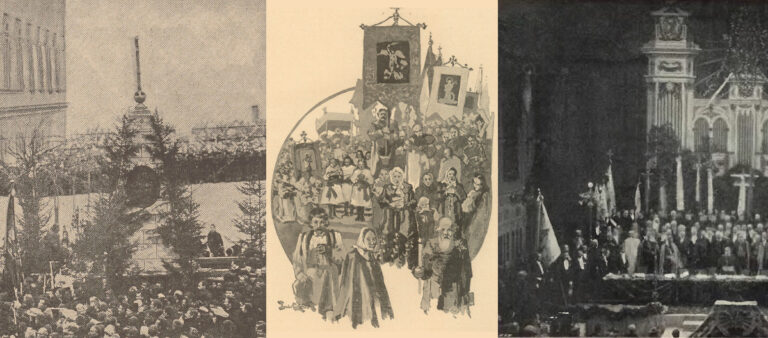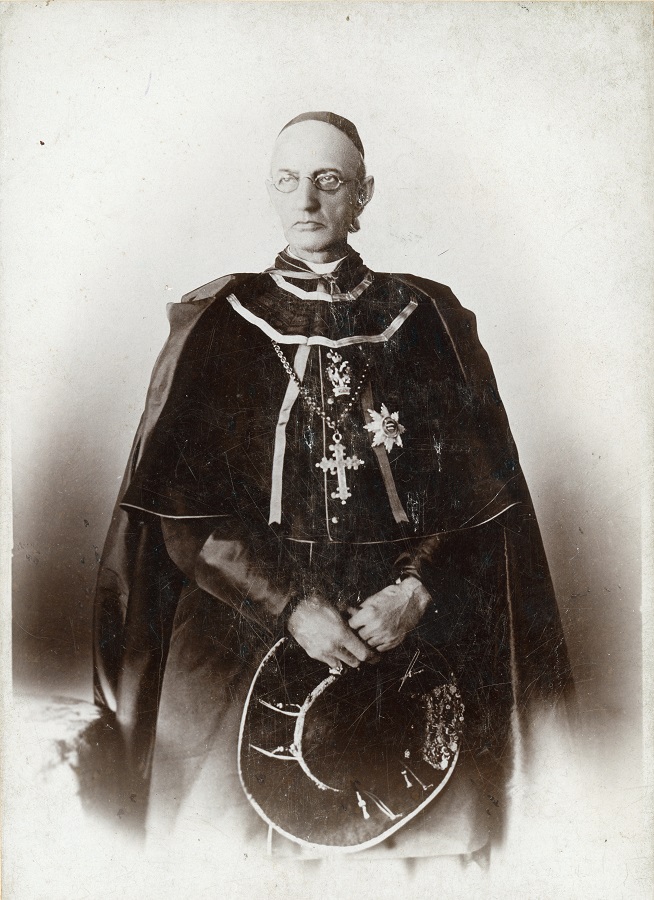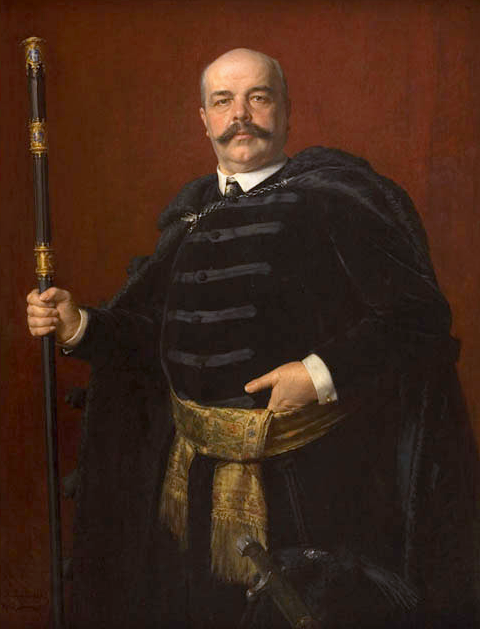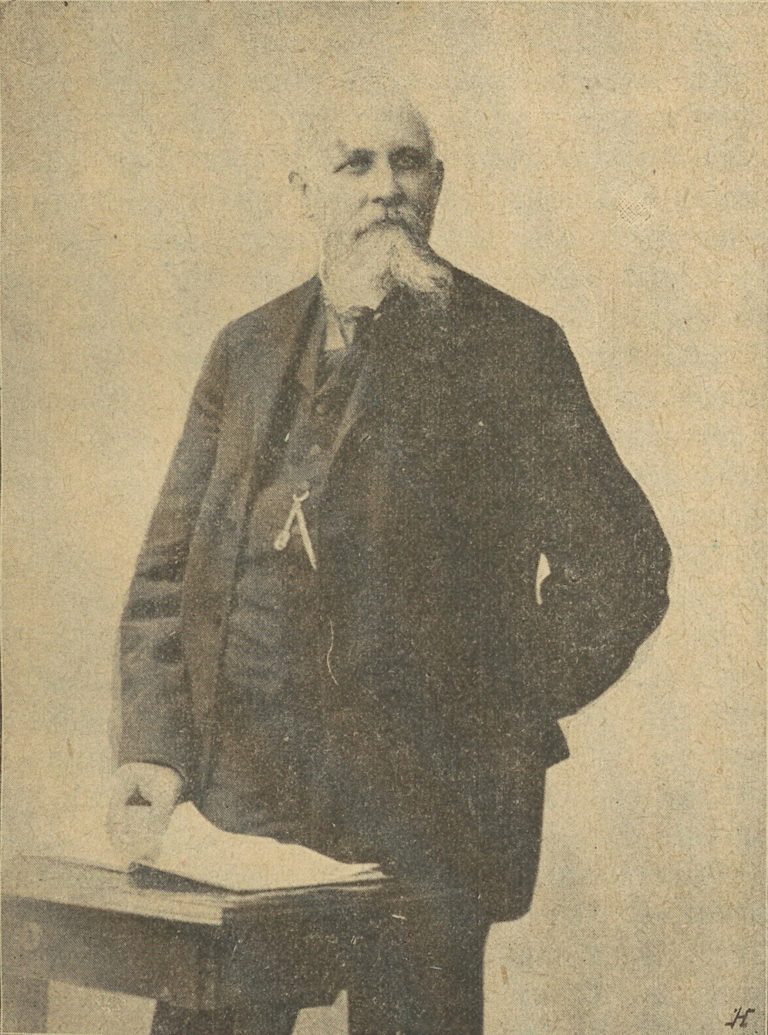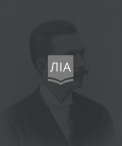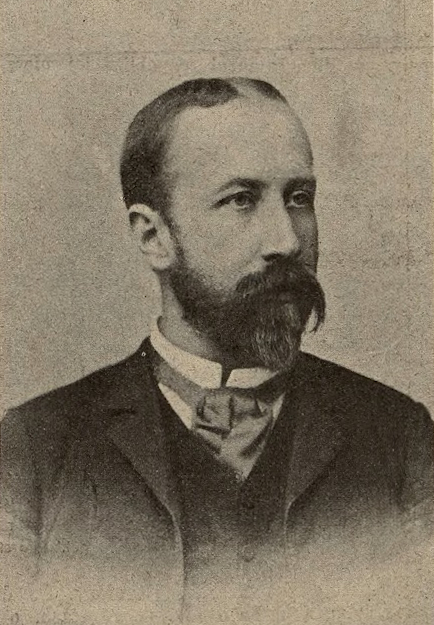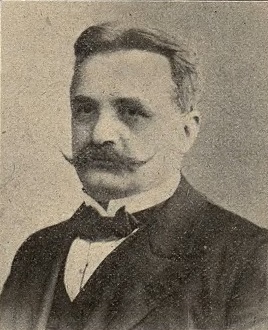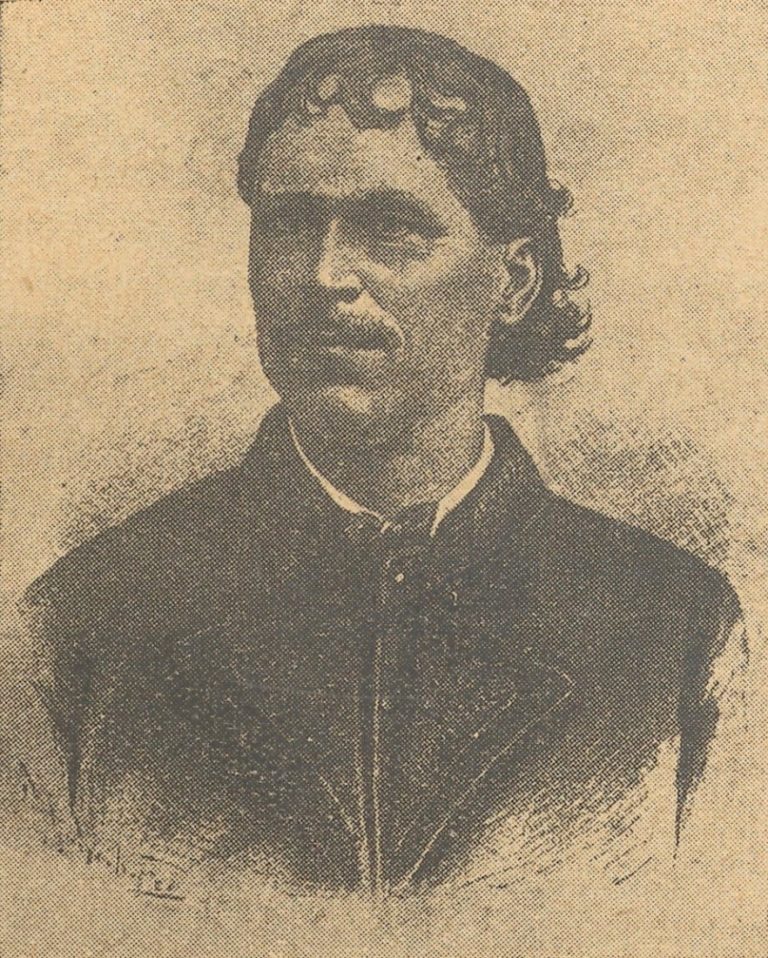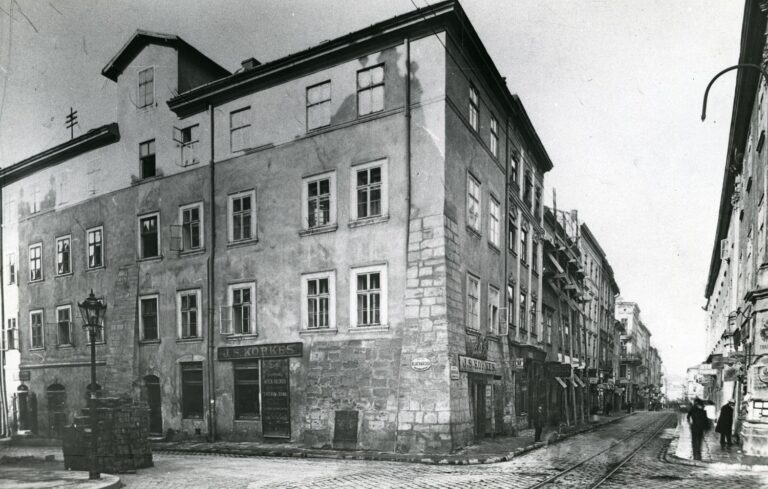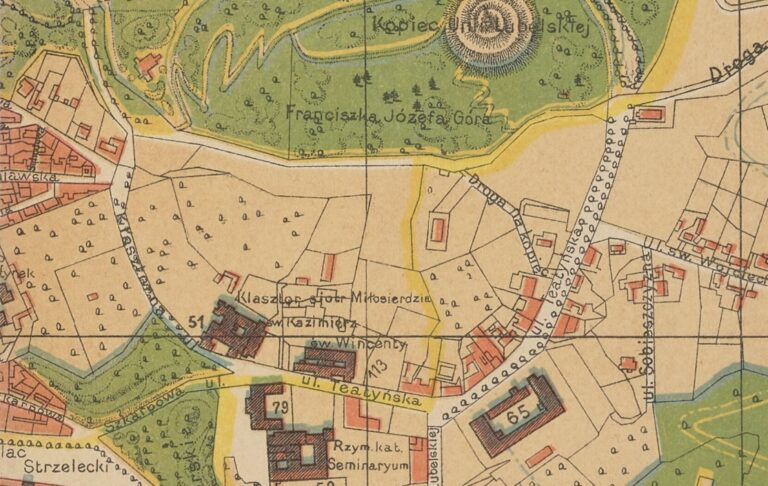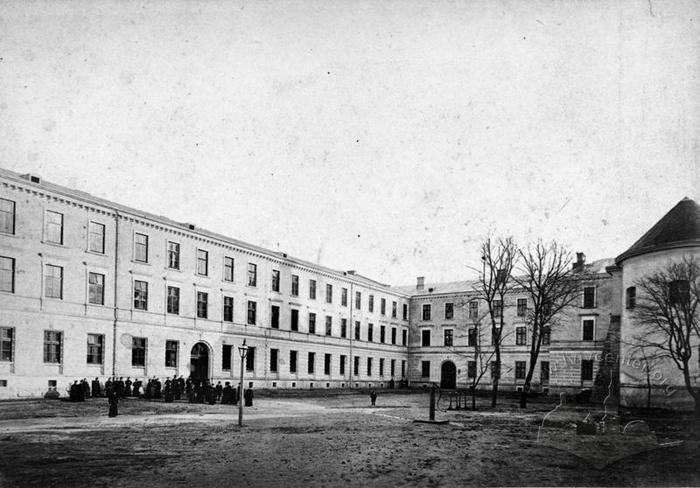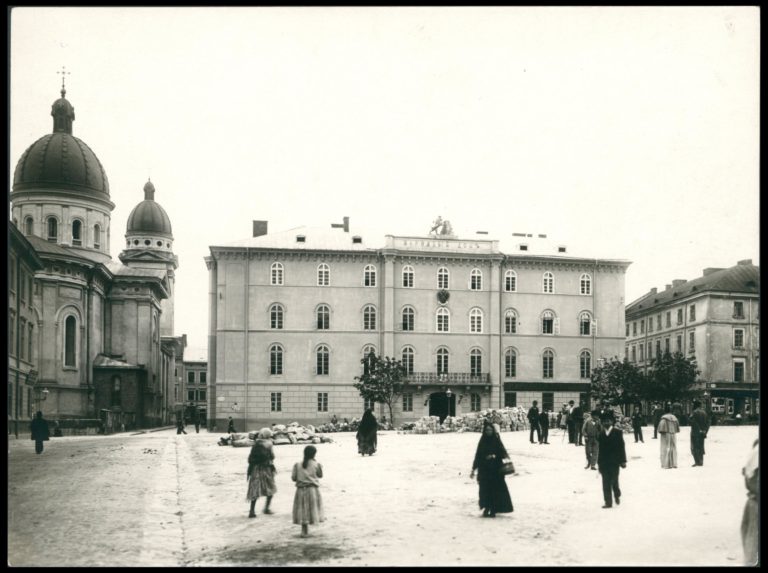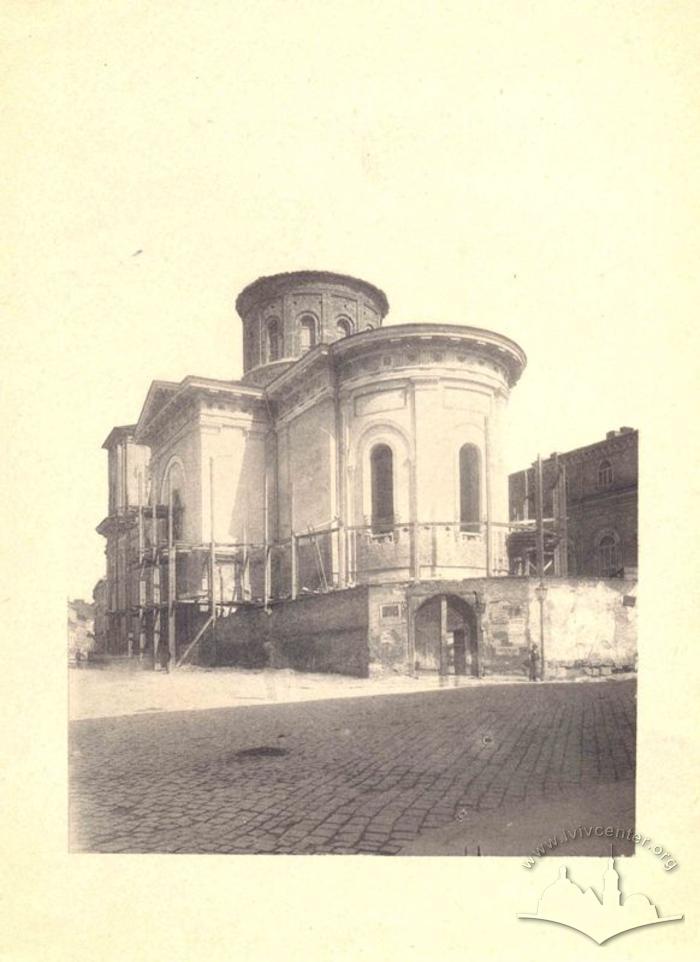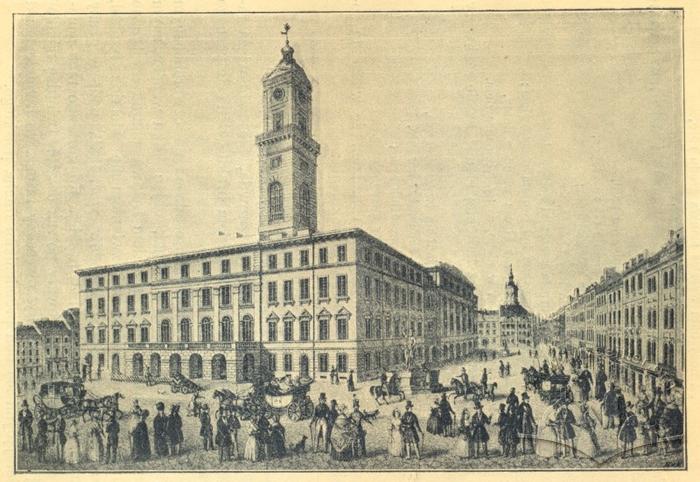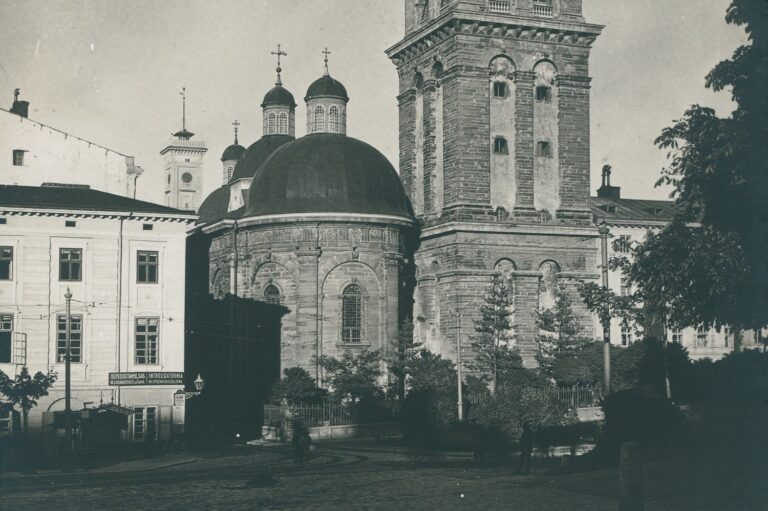The anniversary of the "liberation of the peasantry", which was marked by a celebration in the capital of the crown province, was a confirmation of the status of Lviv both as a place where public policy was made and as a symbolic city for which national projects competed. The large-scale character of the "Ruthenian action" was, as usual, to be provided by peasants from throughout the province. The role of the Greek Catholic Church, as it often happened, consisted, among other things, in organizing the commemoration.
The abolition of corvee labour was an ideal occasion for a Ruthenian national manifestation. In general, it was believed that the Ruthenians, "a nation of peasants and priests", did not suffer in any way from the Austrian policy. Vienna improved the position of both the elite, i.e. the Greek Catholic clergy, and the peasants. In Polish society, however, there could be negative interpretations, given the role of the aristocracy in the national movement, as well as the history of unsuccessful uprisings and the "Galician massacre" of 1846.
As of 1898, there was no longer any talk of a political compromise between the Ruthenians and the Poles, the "New Era" policy was over, and the support of the pro-Western Metropolitan Sylvester Sembratovych among Ukrainian activists decreased. Accordingly, celebrations on the occasion of the anniversary were organized separately by the church and secular politicians.
The latter, not having any special sentiments for the uprising suppressed by the government troops on November 1, 1848 (this anniversary was periodically celebrated in Lviv as a day of mourning), decided to organize the celebration of the "liberation of the Ruthenian peasantry from the Polish masters by the emperor." The authorities in Lviv were at the same time preparing to celebrate the 50th anniversary of Emperor Franz Joseph’s reign.
Organization and preparation
Every year in May, the Greek Catholic Church traditionally held events dedicated to the abolition of corvee labour. A service in honour of Emperor Ferdinand I, who abolished the feudal system, was celebrated; seminarians organized a concert at the Greek Catholic seminary in Lviv.
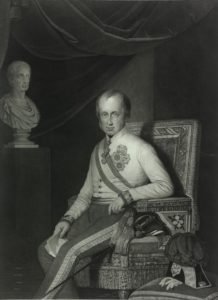
Цісар Фердинанд І
For the 50th anniversary of the event, the Greek Catholic bishops prepared a joint pastoral letter. In it, they recommended to hold solemn services in the churches of the province on May 15, 1898, to read special pastoral letters instead of the usual sermons, and also to go with processions from the churches to the memorial crosses dedicated to the abolition of corvee labour. It was also planned to collect funds for charitable purposes and to combine this with the commemoration of the 50th anniversary of Emperor Franz Joseph’s reign. The monarch, as was well known, encouraged charity, especially on the occasion of public holidays.
Meanwhile, Ruthenian politicians took up the organization of the celebration through the Provincial Ruthenian Election Committee, which at that time united populists and Russophiles. The jubilee committee created by them in May 1897 was unable to secure the support of the church, as it was unrealistic to combine Russophiles and Metropolitan Sylvester Sembratovych in one structure. Although both groups of organizers periodically crossed paths and even held joint meetings, two separate actions dedicated to the same event resulted: that secular and that clerical.
The course of events
On May 15, planned solemn services were held in Greek Catholic churches. The service in St. George's cathedral was attended by the Marshal of the provincial Diet (Sejm), Count Stanisław Marcin Badeni; as usual on similar occasions, lots of peasants from nearby villages gathered on the square in front of the church. The funds collected on this occasion in all parishes were to be used to buy back mortgaged peasant land plots, as well as for the construction of churches in poor communities and for the establishment of a Ukrainian craft boarding school in Lviv. Festive processions went through the city streets from St. George's cathedral and the Assumption church after the service.
The secular program for May 19 was more intense. In addition to a church service and fundraising for the opening of the boarding school in Lviv, an "all-people’s assembly" at the Vysoky Zamok (High Castle) Hill was also organized, as well as a concert in the People's House.
The solemn morning service (which was attended by several thousand people, including many peasants from throughout the province) was held not in the cathedral of St. George, but in the Assumption church. It was a common phenomenon that at times the church hierarchy distanced itself from participation in events. The parish priest of the church, Teofil Pavlykiv, a Russophile, who was a participant in the events of 1848, celebrated a commemorative service for Emperor Ferdinand I and "all those who contributed to the abolition of corvee labour." After that, another priest, Danylo Taniachkevych, gave a speech about the historical significance of the liberation of the peasantry.
From the Assumption church, the participants went to the Vysoky Zamok Hill to hold an assembly (actually, a rally) there. According to the government-run newspaper Gazeta Lwowska, around three thousand people gathered there. At the same time, it was noted that there were many women among them. In this case, it is probably not about emancipation, but about the fact that whole peasant families used to come to Lviv for attractions like this. Among the participants, the press separately mentioned such figures of the populist and Russophile movements as Yulian Romanchuk, Teofil Okunevsky, Mykhailo Korol, Yosyp Huryk and others. They talked about the positive role of Emperor Ferdinand and the governor Franz Stadion in history, as well as the "Ruthenian patriots of 1848", in particular Metropolitan Yakhymovych and Bishop Kuzemsky; about the continuity of modern politics from the Supreme Ruthenian Council of 1848; about loyalty to Austria and equality among other peoples of the empire; about the elections, because the election committee was engaged in the organization of the festivity.
There were no excesses, until student Yulian Siokalo, a Russophile, took the floor. As early as the stage of preparation for the anniversary, there were lively disputes about him in the student environment. Ukrainophile organizations sharply opposed giving the floor to him as a representative of the "Ukrainian-Ruthenian students", because Yulian Siokalo considered himself "Russian." Members of these organizations (the Academic Society and the Osnova), however, were present at the rally as ordinary participants. At the time when Siokalo began to speak on behalf of the "academic youth", shouts rang out in the crowd and "confusion began." Then "the academician was hit several times with sticks" (which indicates the preparation on the part of the opponents), and in the end the police commissioner stopped the assembly.
After the unexpected end of the rally, some of the participants, singing the Ruthenian anthem of 1848 "Peace to you, brothers", went to the city along ul. Teatyńska, ul. Czarneckiego and ul. Ruska through the Rynok Square and ul. Krakowska (Krakivska) to the recently opened Transfiguration church, where they showed their respect for Fr. Danylo Taniachkevych, one of the leading populists, through an “ovation.”
The concert of the Boyan society in the People's House at 5 p.m. was somewhat spoiled, as some of the choir members were actively involved in the events at the Vysoky Zamok Hill and could not sing.
Consequences of the event
This anniversary is a confirmation of the fact that Ukrainian politicians considered Lviv to be a place where politics was made. It is no wonder that Ukrainian politicians had few potential voters in the city itself, among its residents, mostly Poles and Jews. More important was the symbolic status of Lviv as the "capital of the Ruthenian province." Therefore, it was decided to celebrate the liberation of the Ruthenian peasantry with the massive participation of the same peasantry precisely in the city.
The anniversary of the abolition of corvee labour was a good opportunity to demonstrate the Ukrainian "presence" in Lviv. Moreover, not only as usual, in a church and the People's House, but also through a solemn procession in the city and a rally at the Vysoky Zamok Hill, which was attended by many peasants from throughout the province. However, the misunderstanding of the secular elite with the Greek Catholic hierarchs, as well as the rather conflicting entry of student youth into the political scene, nullified the mass effect. As a result, the event was perceived not as a national manifestation, but as an example of misunderstandings between political groups.
Nevertheless, the cult of the abolition of corvee labour, already developed at that time, became even more firmly entrenched in the national Ukrainian mythology.
